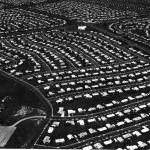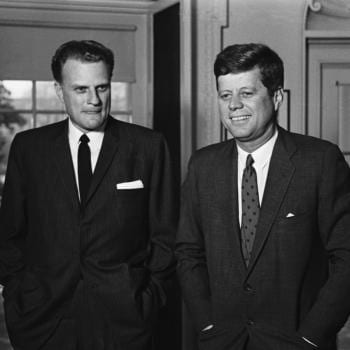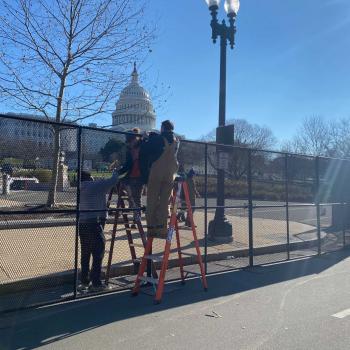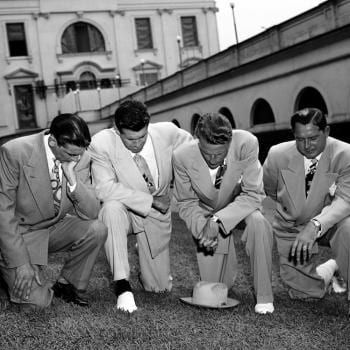Actually, the city that has contributed more to national culture than many natives realize — from Edgar Allan Poe and H. L. Mencken to Barry Levinson (Hollywood director for movies about Baltimore, Diner, Tin Men, Avalon, and Liberty Heights) and David Simon (creator of the HBO series, The Wire) — was never that great. The point of living in Baltimore, according to Mencken, who lived there his entire life and generally adored the city, as much as a curmudgeon can, was not greatness but modest comfort. He admitted that he made money in New York City (where he edited the magazine, The American Mercury), but spent his earnings in Baltimore, not extravagantly, but on human-scale pleasantries:
The charm of getting home, as I see it, is the charm of getting back to what is inextricably my own – to things familiar and long loved, to things that belong to me alone and none other. I have lived in one house in Baltimore for nearly forty-five years. It has changed in that time, as I have – but somehow it still remains the same. No conceivable decorator’s masterpiece could give me the same ease. It is as much a part of me as my two hands. . . .
I believe that this feeling for the hearth, for the immemorial lares and penates, is infinitely stronger in Baltimore than in New York – that it has better survived there, indeed, than in any other large city of America – and that is persistence accounts for the superior charm of the town.
That is a perspective, perhaps long gone but also mainly missing in the latest controversy swirling around President Trump. What is particularly curious in the latest battle between the President and many journalists is a surprising the role reversal. When the United States was the subject, as in Make America Great, journalists were quick to point out the many ways that the nation is far from great. With its racist, misogynist, capitalist, militarist (for starters) past, it may actually be the greatest source of wickedness in the world, all the more so with a charlatan and egotist like Trump in the White House. But when it comes to Baltimore’s severe problems, some journalists have tried to defend the city as not so bad (though most have conceded the severe conditions in the city and tried to blame the president for them as much as any member of Congress, such as Elijah Cummings).
Notice though what Jelani Cobb wrote at the New Yorker:
when Trump referred to the communities that Cummings represents, he omitted more affluent ones such as Ellicott City and Baldwin in favor of the poorer areas of Baltimore—places that he could ridicule en route to making his hyperbolic point. This is the essence of racism: an epidermal association of a group of people with the worst possibilities, even when—especially when—available evidence points to the contrary.
I wonder what Mr. Cobb would say when Americans try to defend the United States from criticisms that render the nation one of the most vile in human history. What if someone pointed to the lives of Americans lost in the Civil War to rid the nation of slavery? What if someone looked at Silicon Valley’s success or New York City’s wealth or Hollywood’s knack for entertainment as indications that the United States is not as bad as its maligners make out?
We are stuck in a crossfire between whatever the President does, important gatekeepers in media and elite institutions are against it. (We have not had such moral clarity since the early days of the Cold War, and come to think of it, Russia is evil again.) So if Trump says America’s great, the proper response is to show that the nation is not. And if the President says a city is dilapidated, the press’ job is to show it’s not so bad.
We need something in the middle and Baltimore has the solution. It comes in the form of The Wire, the unbelievably great tv show that David Simon, a longtime reporter for the Sun, created. It shows in five seasons the relentless effects of a drug epidemic on Baltimore’s police, government, electoral process, families, schools, police, ports, journalists, and residents. And it also displays how poorly equipped the city’s important institutions were to serve Baltimore’s residents, even when philanthropists, teachers, police, and mayors had the best of intentions to do something good and noble. At many times the show makes you weep, not because Simon makes the city look so bad (which he does) but by showing the tragedy of the human condition and the serious limits of government and schools and health care officials and university professors and newspaper editors to ameliorate the ordinary forms of human suffering.
In other words, Baltimore is a mess and has been poorly government (though Trump may want to go after mayors, city councils, Maryland governors and legislators before singling out a single Congressman). But Simon’s series does not use the city to score political points. He shows the depths of life in modern urban America, especially among the poor. And on top of that he shows how gosh darned resilient the human spirit is. Because almost every character in The Wire, from beat patrolman to the kid slinging dope on the corner, does not give in. He or she keeps on going, keeps on fighting, keeps on living.
It is not human flourishing. But why would anyone ever think (if your a Christian anyway) that human beingss after the fall would flourish?
Modesty, please.















